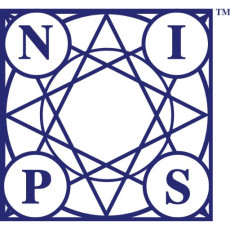Berkeley Lab Staff to Participate in Major Machine Learning Conference
December 1, 2017
Berkeley Lab’s growing involvement in deep learning research and development will be evident next week when several staff members present papers and posters for the first time at the 2017 Conference on Neural Information Processing Systems (NIPS). NIPS is a machine learning and computational neuroscience conference that includes invited talks, demonstrations and oral and poster presentations of refereed papers. This year’s event takes place Dec. 4-9 in Long Beach, Calif.
“Just as SC is the premier venue for the high performance computing community, NIPS is the ‘go to’ event for those in machine learning,” said Prabhat, who leads the Data and Analytics Services Group at NERSC.
- Kris Bouchard, a computational neuroscientist at Berkeley Lab, and Prabhat are co-authors on a paper being presented Monday, Dec. 4, “Union of Intersections for Interpretable Data Driven Discovery and Prediction.”
- Evan Racah, a former data analytics engineer at NERSC, and Prabhat are co-authors on a paper being presented Wednesday, Dec. 6, “ExtremeWeather: A large-scale climate dataset for semi-supervised detection, localization and understanding of extreme weather events.”
- Thorsten Kurth from NERSC is giving an invited talk on "Deep Learning at 15 PF" at the "Deep Learning at Supercomputer Scale" workshop on Saturday, Dec. 9.
- Multiple members of the Big Data Center collaboration will present a poster on “Scaling GRPC TensorFlow on up to 512 nodes of the Cori supercomputer” on Saturday, Dec. 9 at the "Deep Learning at Supercomputer Scale" workshop. NERSC staff include Mustafa Mustafa, Debbie Bard and Prabhat.
Prabhat is also co-organizing the inaugural workshop, “Deep Learning for Physical Sciences,” which takes place Friday, Dec. 8 (link includes the workshop schedule). Berkeley Lab staff are also co-authors on several posters being presentated at the workshop:
- “Segmenting and Tracking Extreme Climate Events using Neural Networks,” Karthik Kashinath (NERSC), Travis O’Brien (CESD) and Prabhat (NERSC)
- “Tips and Tricks for Training GANs with Physics Constraints,” Luke de Oliveira, Michela Paganini and Benjamin Nachman (Physics)
- “Particle Track Reconstruction with Deep Learning,” Steve Farrell (Physics), Paolo Calafiura (CRD) and Prabhat (NERSC).
- “Improvements to Inference Compilation for Probabilistic Programming in Large-Scale Scientific Simulators,” Wahid Bhimji (NERSC), Prabhat (NERSC) and other members of the Big Data Center collaboration.
About Berkeley Lab
Founded in 1931 on the belief that the biggest scientific challenges are best addressed by teams, Lawrence Berkeley National Laboratory and its scientists have been recognized with 16 Nobel Prizes. Today, Berkeley Lab researchers develop sustainable energy and environmental solutions, create useful new materials, advance the frontiers of computing, and probe the mysteries of life, matter, and the universe. Scientists from around the world rely on the Lab’s facilities for their own discovery science. Berkeley Lab is a multiprogram national laboratory, managed by the University of California for the U.S. Department of Energy’s Office of Science.
DOE’s Office of Science is the single largest supporter of basic research in the physical sciences in the United States, and is working to address some of the most pressing challenges of our time. For more information, please visit energy.gov/science.










